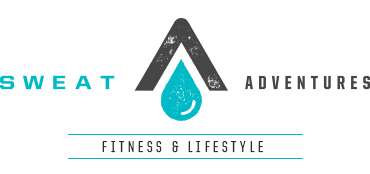There are several studies out there linking chronic stress to inflammation and disease. Essentially, stress is associated with just about every modern disease you can name. Cardiovascular disease, cancer, autoimmune conditions, depression and gastrointestinal problems to name a few. Knowing this should be enough to make stress management an important part of our daily routine. While we may not be able to avoid stress, we can certainly influence how it affects us.
In fact, if you’re not practicing stress management daily, you will sabotage all of your best efforts with diet and exercise.
So why is this extra important for athletes and those of us who workout? Well, It is no secret that movement plays an important roll in living a healthy lifestyle but did you know exercise is a form a stress? While it is definitely a healthy form, it is important to find balance with fitness so that you don’t burn out, hit a wall or feel fatigued.
Stress reduction is vital for optimal performance.
Whether you’re focused on sport, running or CrossFit (etc.) a pinch of meditation can help you manage stress and perform your best. Beyond stress management, meditation can help you focus, cope with pain, strengthen your immune system, increase endurance, stabilize emotions, enforce positivity and improves quality of sleep. Better sleep also means faster recovery times from training, racing or even injury.
The cool thing about meditation is that the act of meditating is stress-relieving, yes but meditation can also help you feel relaxed and centered in stressful situations thus changing how you perceive stress. So why aren’t we meditating more often?
I know. Meditation is HARD. Sitting in stillness (if even for only 10 minutes) and focusing on our breath is challenging. Something that’s supposed to be super relaxing can seem quite the opposite when your mind won’t “turn off” or stop thinking. This experience is very normal. Finding stillness in the mind takes practice. Lucky for us, there are a few tricks that make meditation more approachable.
- Try a Meditation App! Seriously, they do wonders for us beginners. And most of them are FREE. Here are my favorites: Headspace, Calm, Insight Timer and Buddhify.
- View this as your quiet “me” time. Something you can do anywhere you feel comfortable. In bed, on a meditation pillow, at the park, in the bath (just don’t fall asleep!) – wherever you feel inspired to relax and calm the mind.
- Elevate your practice with essential oils, a sound machine or crystals. Okay, so this is a big one for me. Lately, I’ve been loving my Gratitude Blend from Young Living. The ylang ylang in this blend helps you relax and feel grounded. The uplifting oil promotes the emotions of gratefulness, thankfulness, and appreciation. I like to diffuse, inhale directly, add several drops to bath water or in a hot shower, or apply to wrists or temples. (Others I like include Lavender and Frankincense.)
- If stillness really isn’t your thing, try movement oriented types of meditation – Qigong, Tai Chi, yin style yoga, walking meditation or solo hiking/being in nature.
- Learn from the pros and find a beginner-friendly meditation retreat.
If you aren’t a Young Living member yet but are curious about essential oils and want to get started, you can sign up with my special link here. With the membership, you’ll choose a starter kit that includes 11 oils + a diffuser and other samples. Additionally, you’ll receive wholesale pricing (24% off) all future purchases, an incredible oily community to help you learn all about essential oils and the opportunity to make money telling others about oils (this part is totally optional just an added bonus – sharing is caring).

